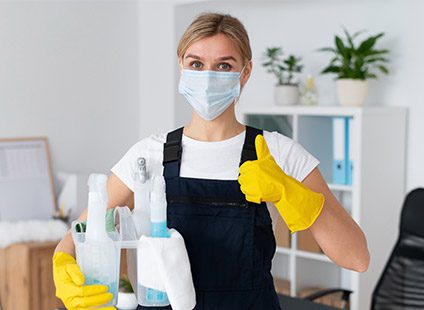The Impact of Cleaning on Your Health and why maintaining a clean home matters
Maintaining personal hygiene and a clean living environment is crucial for good health. Not only does regular cleaning contribute to a tidy and pleasant home, but it also plays a significant role in preventing the spread of illnesses. Let’s delve into how cleaning affects your health and explore the importance of using the right cleaning products.
Why Cleaning Matters for your Health
Personal hygiene practices like frequent handwashing are essential for preventing the spread of germs that cause common illnesses. Similarly, regular cleaning of household surfaces removes dirt and food particles where germs thrive.
Using cleaning and disinfecting products containing antibacterial or antimicrobial ingredients provides extra protection against harmful microorganisms. These active ingredients go beyond simple cleaning to kill or control the growth of germs, reducing the risk of illness transmission within your home.
Understanding the Importance of Killing Germs
Germs are easily spread through person-to-person contact, making hand hygiene crucial for preventing infections. Poor personal hygiene, especially among food handlers, is a significant contributor to foodborne illnesses.
The consequences of illness spread by germs are far-reaching, with Americans spending billions each year on cold treatments and experiencing millions of lost school and work days due to illness. Additionally, germs can survive on surfaces for extended periods, posing a risk of infection if not properly disinfected.
The Benefits of Disinfecting Surfaces
While regular cleaning products effectively remove dirt, disinfectants or antibacterial cleaners are necessary to kill the germs that cause many illnesses. Surfaces like kitchen counters, bathroom fixtures, and children’s toys may harbor bacteria even when visibly clean.
Disinfectant products must meet efficacy requirements established by the U.S. Environmental Protection Agency (EPA) and carry an EPA registration number on their label. Following product instructions carefully ensures surfaces are effectively disinfected, reducing the risk of illness transmission.
Cleaning Products and Health FAQ
- Difference between Disinfectant and Disinfectant Cleaner: Disinfectants kill germs on clean surfaces, while disinfectant cleaners remove soil and kill germs.
- Common Antimicrobial Ingredients: Pine oil, quaternary ammonium compounds, sodium hypochlorite, phenols, and ethanol are commonly used to kill germs.
- Microorganisms Killed: Disinfectants can kill bacteria, fungi, and viruses such as Salmonella, E. coli, Staphylococcus, athlete’s foot fungus, Herpes simplex, Rhinovirus, and Rotavirus.
Choosing Effective Cleaning Products
When selecting cleaning products, look for labels indicating “disinfect,” “antibacterial,” or “sanitize,” along with an EPA registration number. This ensures the product has met EPA requirements for killing germs, providing reassurance that your home is effectively protected against illness-causing microorganisms.
Maintaining cleanliness through regular cleaning and disinfection practices is essential for safeguarding your health and that of your loved ones. By prioritizing cleanliness and using effective cleaning products, you can create a healthier living environment and reduce the risk of illness transmission within your home.
Elevate Your Home’s Cleanliness with Good Cleaner Co.
Looking to elevate your home’s cleanliness to the next level? Good Cleaner Co. is here to help! Our residential cleaning services in Ottawa are tailored to meet your specific needs, ensuring every corner of your home sparkles with freshness and hygiene. With our team of dedicated professionals and industry-leading cleaning techniques, you can trust us to deliver exceptional results every time. From regular maintenance cleaning to deep disinfection, we go above and beyond to exceed your expectations and create a pristine living environment. Schedule your cleaning appointment with Good Cleaner Co. today and experience the difference firsthand.




